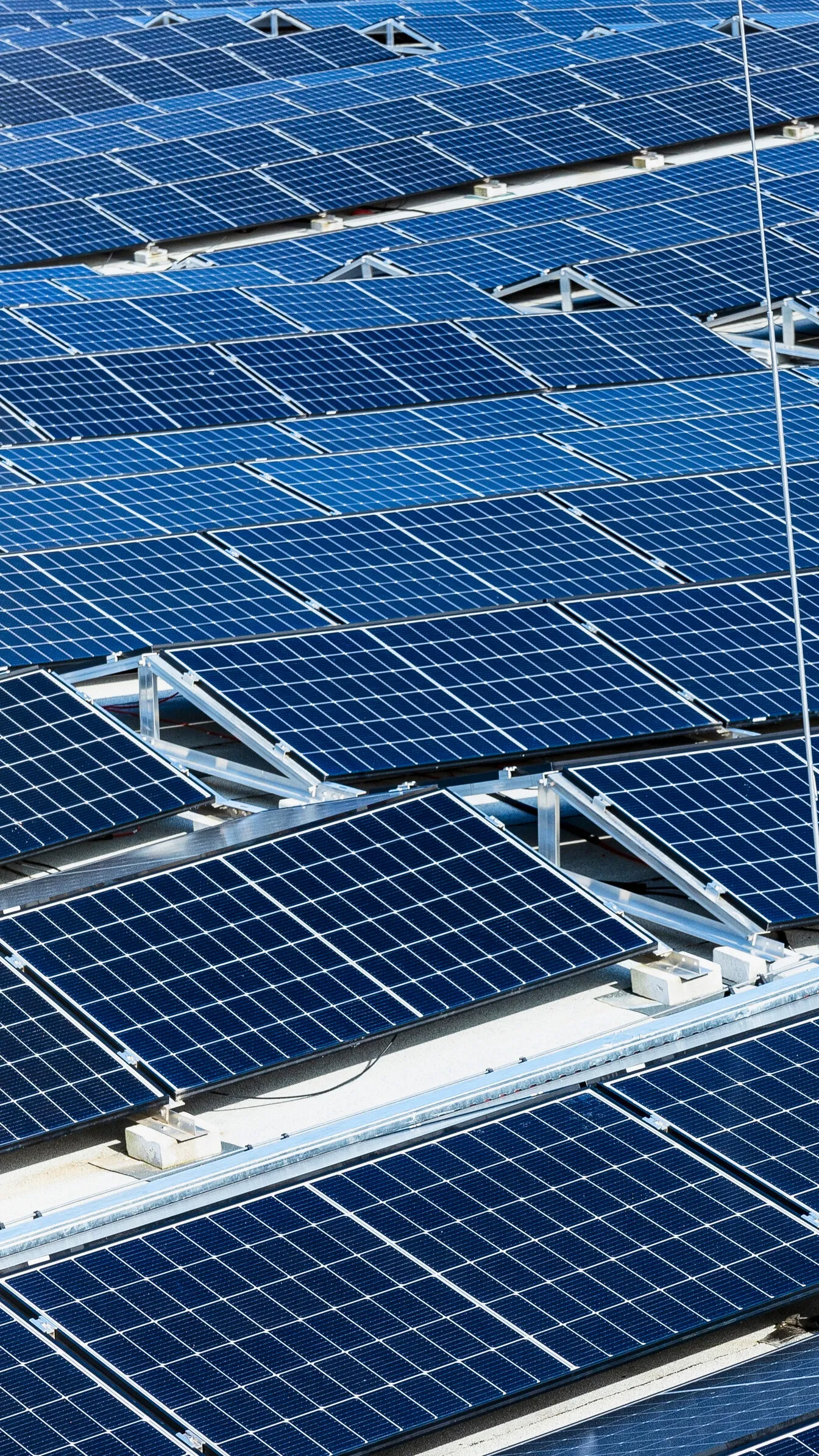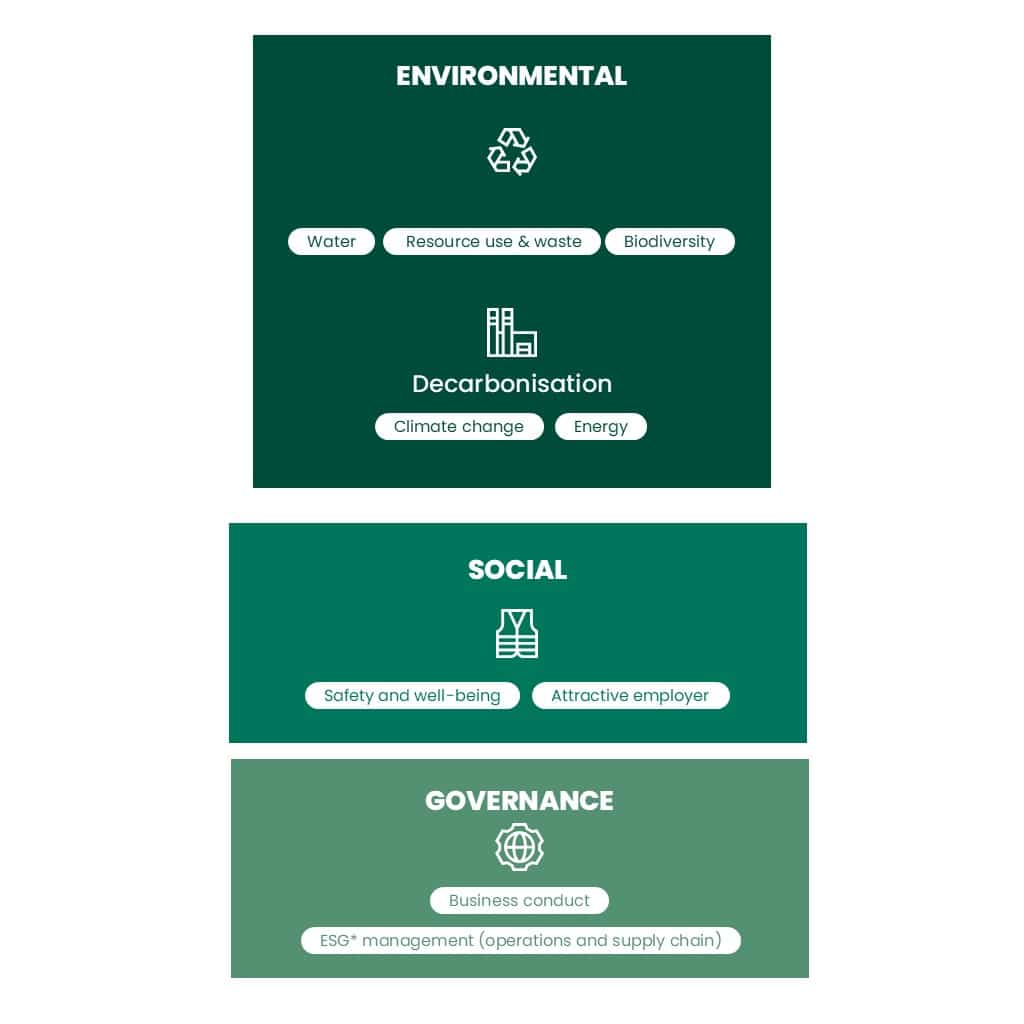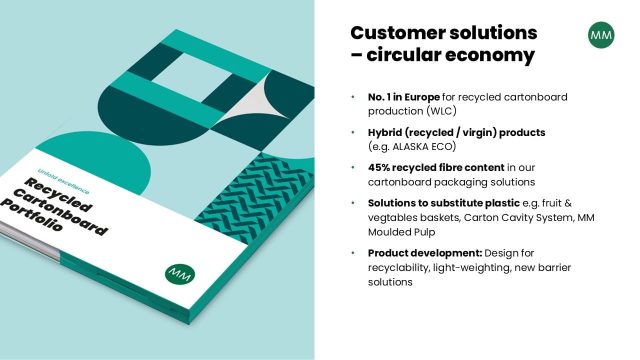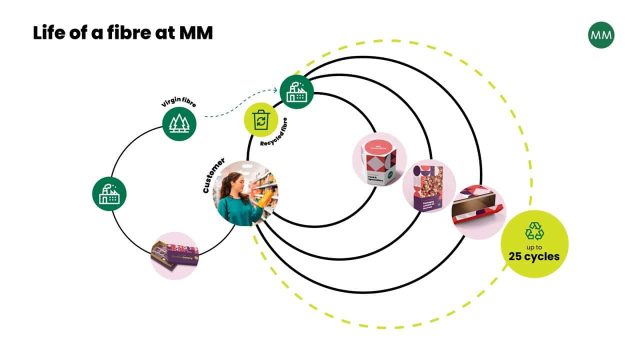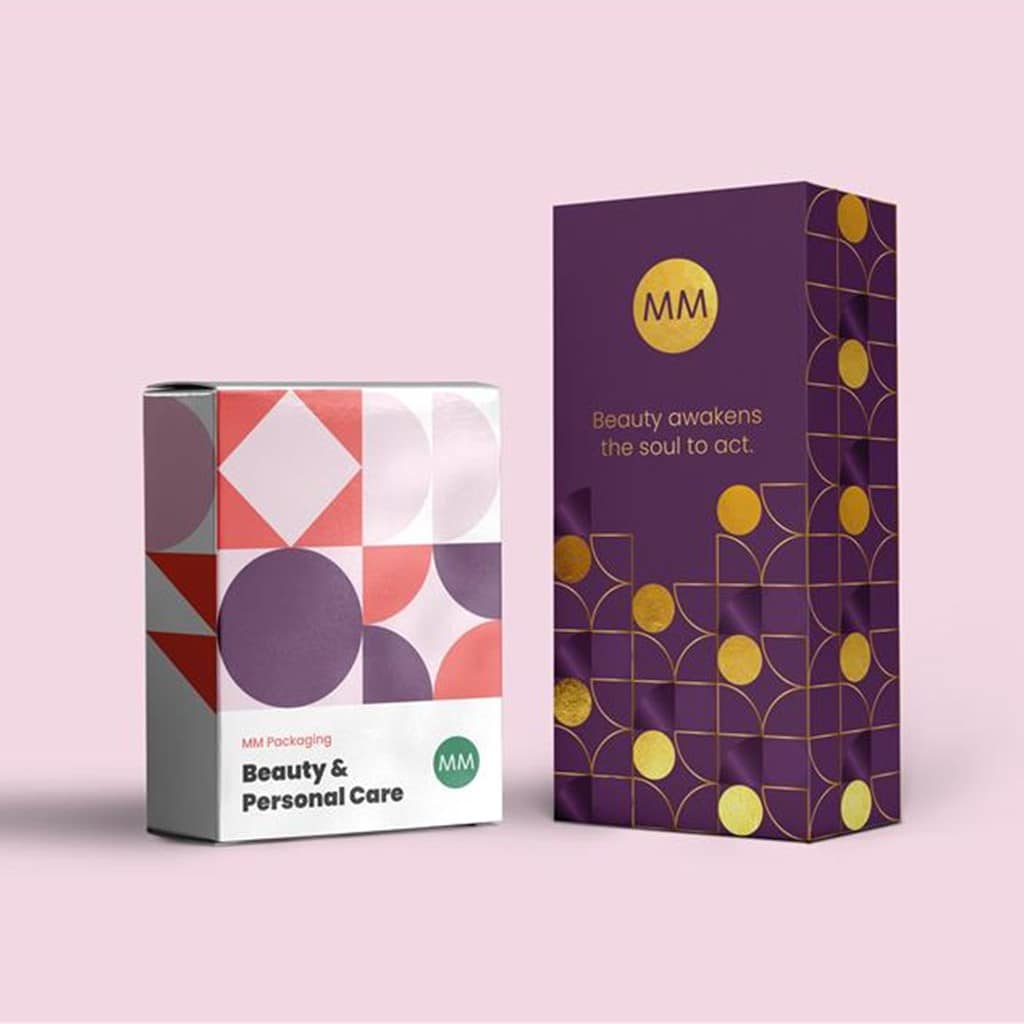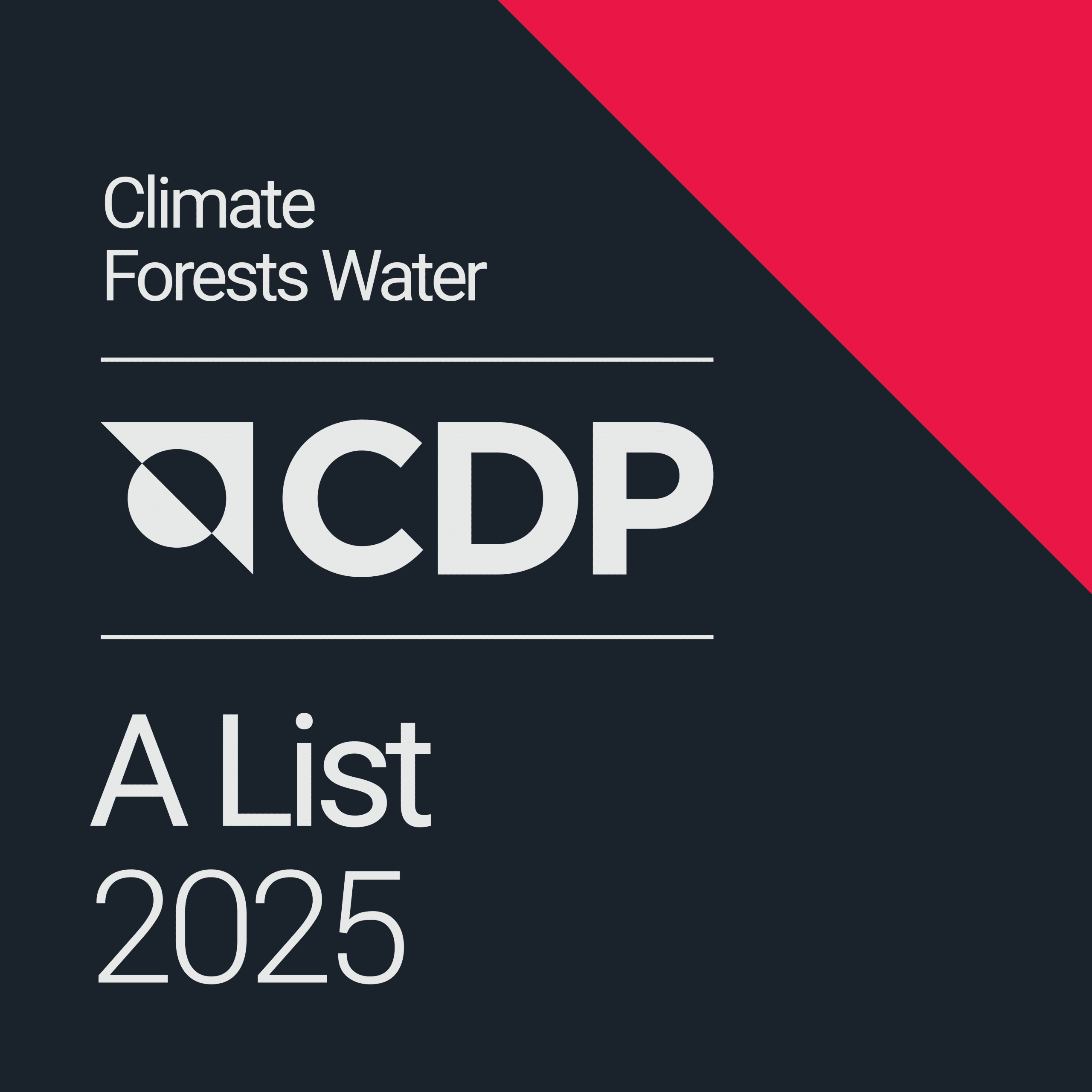
Sustainability
Sustainability approach

MM takes a comprehensive approach to sustainability, addressing a wide range of Environmental, Social, and Governance (ESG) topics.
ESG Ratings
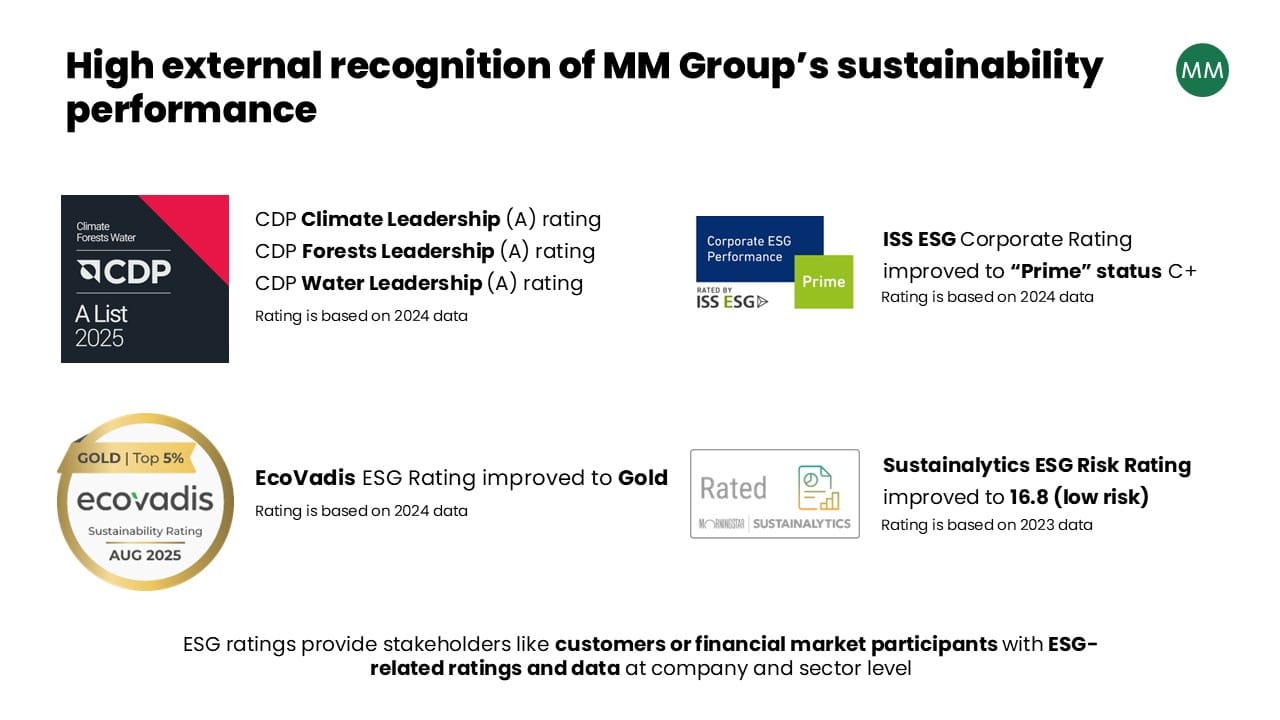
Policies & Code of conduct
Mutual trust as the principal concept offers the basis for joint, constructive cooperation within the company and with business partners. The MM Group places high demands in terms of responsible conduct and integrity on its employees, customers, suppliers, service providers and other contractual partners as well as environmental sustainability.
